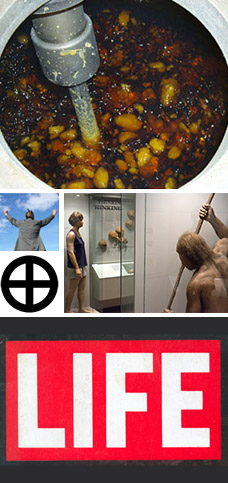
an animals? "Take a good look at the antelope, she is all running, and runs so
much better than man-or the bear, who is
all strength. M
en can only do i
Indirect Deliveries
n part what the animal is, tot
ally." This fairy-tale way of thin
- king, no matter how odd it may sound, is the preliminary to our scientific, genet
- ic explanation of the world. These Indian pagans, like pagans all over the world, form an at
- Four-hour online course consisting of five modules - participants may start and stop the course at their convenience
- tachment out of reverential awe-what is known as totemism-to the animal world, by believing in animals o
- f all kinds as the mythical ancestors of their tribes. Their explanation of the world as inorganically coherent is not so far removed from Darwinism; for whereas we impute n
- atural law to the autonomous process of evolution in nature, the pagans attempt to expl
- ain it through arbitrating. When the Indian in his mimetic costume imi
Scope of Course
- tates, for identification with the an
- imal world. It is, one might say, a Darwinism of mythical elective affinity which determines the lives of these so-called primitive people. The formal survival of the hunting dance in San Ildefonso is obvious.
- But when we consider that the antelope has been extinct there for more than three generations, then it may well be that we have in the antelope dance a transition to the purely demoniac kachina dances, the chief task of which is to pray for a good crop harvest. In Oraibi, for example, there exists still today an antelope clan, whose chief task is weather magic. Whereas the imitative animal dance must be understood in terms of the mimic m
- agic of hunting culture, the kachina dances, corresponding to cyclic peasant festivals, have a character entirely of their own which, however, i
- s revealed only at sites far removed from European culture. This cultic, magical masked dance, with its entreaties focused on inanimate nature, can be observed in its more or less original form only where the railroads have yet to penetrate and where-as in the Moki villages-even the veneer of offical Catholicism no longer exists. The children are taught to regard t
with a deep rel
- igious awe. Every child takes the kachinas for supernatu
- ral, terrifying creatures, and the moment of the child's initiation into the nature of the kachinas, into the society of mUSasked dancers itself, r
- epresents the most important turning point in the educ, International Association of Chiefs of Police
- ation of the Indian child. On the market square of the rock village of Oraibi, the most remote westerly point, I was lucky enough to observe a so-called h
- Multiple reporting forms for customization by individual districts or schools
Indirect Deliveries
Interested in teaching this class to your local first responder or educational community?
dance. Here I saw the living originals of the masked dancers I had already seen in puppet form in a room of this same village of Oraibi. To reach Oraibi, I had to travel for two days from the railway station of Holbrook in a small car
riage. This is a so-called buggy with four light wheels, capable of advancing
- through desert sands where
- only gorse can grow. The driver throughout
Sign up for the online course
the region was Frank Allen, a Mormon. We experienced a very strong sand21 storm, which compl
etely obli

